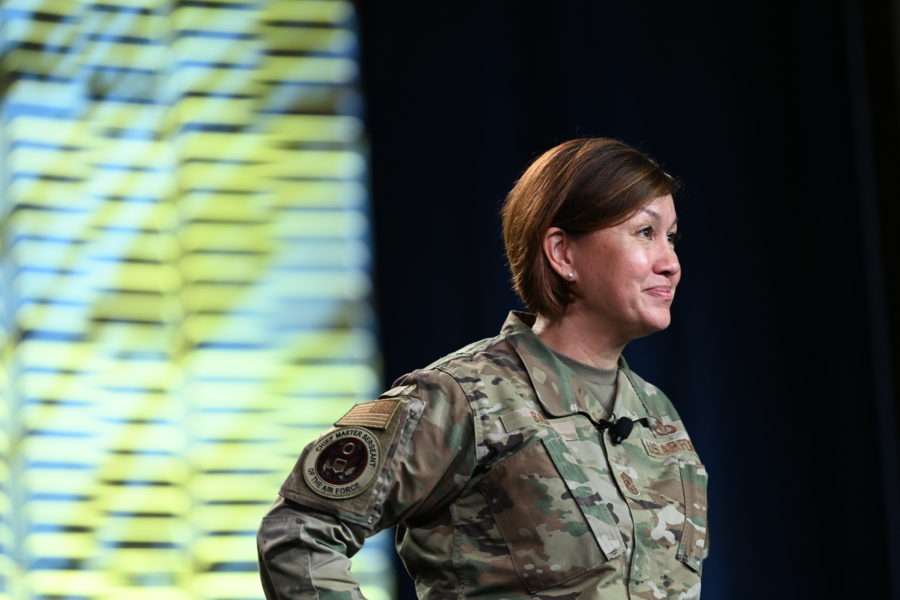The Air Force and the rest of the Pentagon have to find faster ways to assess and respond to compensation issues that affect Airmen, two of the service’s top leaders said.
Rising inflation and housing costs that have left many service members and their families scrambling to make ends meet have highlighted that need—while the Pentagon’s response has taken time, acknowledged Chief Master Sergeant of the Air Force JoAnne S. Bass and Vice Chief of Staff Gen. David W. Allvin in a “Coffee Talk” event streamed on Facebook.
“Where we are right now, I don’t think we anticipated it was going to be this bad two years ago, and our Airmen are the ones paying the price,” Allvin said.
Officials have taken some steps to try to help service members. In September 2021, the DOD approved a temporary increase in the Basic Allowance for Housing for certain markets to match surging prices. And in the 2023 budget, leaders proposed the largest pay increase for troops in 20 years, increases to BAH and the Basic Allowance for Subsistence, and the creation of a new Basic Needs Allowance.
But that temporary BAH increase took months to put in place after reports of families struggling first appeared, and then it expired at the end of the year. And Congress has yet to pass the 2023 budget and National Defense Authorization Act to put the proposed changes into effect, with little hope it will do so before the end of the fiscal year.
Looking to speed up some of those processes, Bass said she and her fellow senior enlisted advisers in the other services are pushing for a “holistic military compensation review.” DOD conducts a Quadrennial Review of Military Compensation—the last review went from fiscal 2018 to 2020 and was issued in December 2020.
With the new review slated to begin soon, Bass said she and the other SEAs have already identified several top priorities.
“And one of those things was we need a more modern way to be able to assess BHA, OHA, COLA,” Bass said. “The days of a survey? No. There’s better ways to assess it. And we need to figure out what that modern way is.”
It’s not enough to simply assess changes, Allvin added—“we need to be able to apply it so our Airmen don’t suffer while the money is catching up,” he said. “Which means we need to continue to engage with Congress to ensure that we have … ways of being able to compensate on more than just a two-year cycle.”
Cuts to Special Duty Pay
While the compensation review will likely begin soon, Airmen are still feeling the squeeze right now—and while the proposed 2023 budget does include an overall pay raise, it also includes a cut to special duty assignment pay.
SDAP is given to Airmen with “extremely difficult duties that may involve an unusual degree of responsibility in military skill,” according to budget documents. Currently, the Air Force has authorized SDAP for more than two dozen kinds of Airmen.
Officials want to cut the program by more than $1.4 million in 2023, “really across the board, for all of our special duties,” Bass said.
Allvin acknowledged the dissonance between that cut and concerns about inflation, but said it was part of the service’s effort to fund needed future capabilities.
“It’s tough to look at the Airmen and say, ‘Yes, we have tough economic times, but I’m going to cut your pay anyway.’ It is true that in the context of building the budget, sometimes you do lose touch, you lose some connection,” Allvin said. “And when we look at that, sometimes it’s framed, unfortunately, in terms of, ‘Well, do we want to be able to have the force we need in the future?’ And so we carve out little bits of money here and there to afford that next F-35 or to be able to do that development and testing. But that doesn’t resonate very well.”
